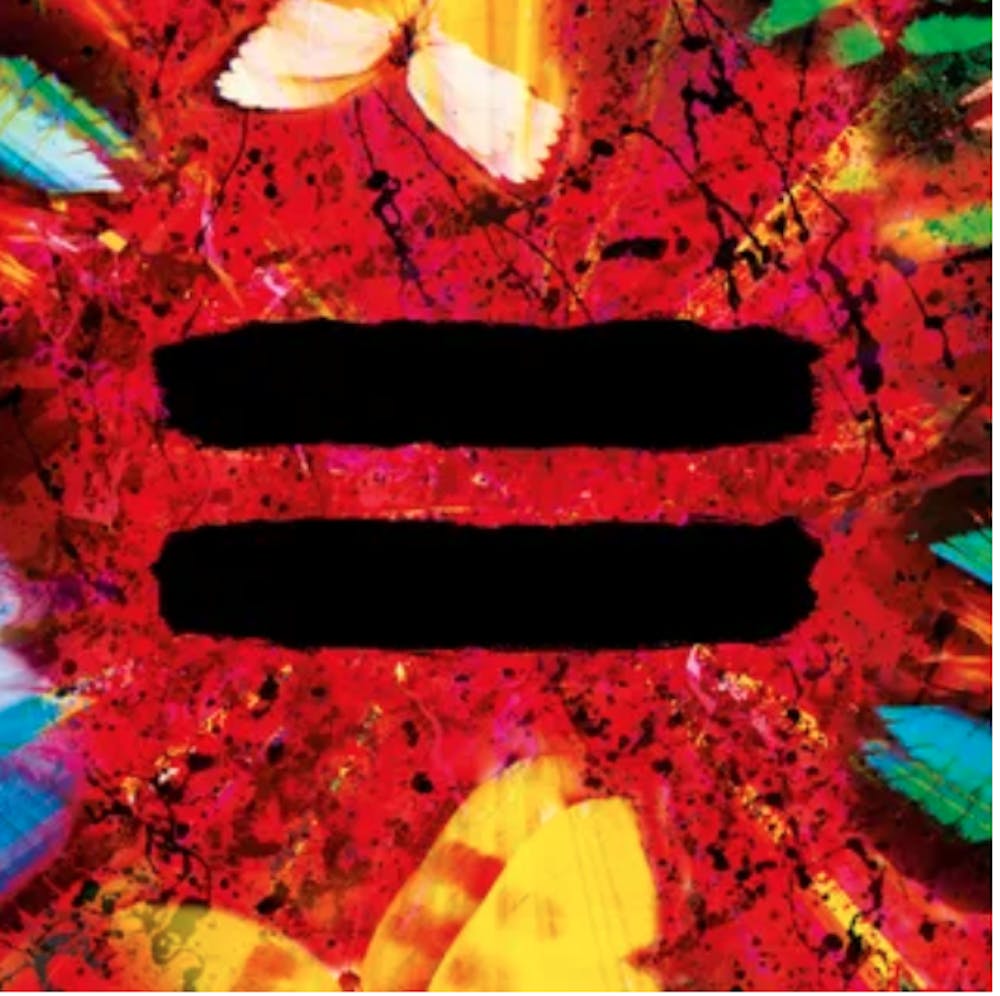By Lysa Legros
Staff Writer
On Oct. 29, Ed Sheeran released his new LP “=” (“Equals”). The album landed at No. 1 on the Billboard 200, and two of its singles “Bad Habits” and “Shivers” peaked in the top 10 of Billboard’s Hot 100 (the tracks got placed second and sixth respectively) despite resistance against the “Bad Habits” music video. Ed Sheeran’s popularity may be waning (Equals consumption dropped 282% from Divide), but he’s still extremely successful.
“Equals” encapsulates all of the perceptions people have about Ed Sheeran’s music. His sentimental lyrics and satisfying pop melodies make the album easy to listen to, but generic descriptions and repetitive instrumentation make it hard to love. The album shines in its sweetness and its sincerity.
It’s clear from the way Sheeran’s voice warbles as he details his first kiss with his wife in early album track “First Times,” to his gentle declaration to his daughter that “you were loved before you had arrived/And every day that love just multiplies” in the penultimate track “Sandman,” that he put a lot of heart into this record. And yet, it feels generic and fake. His metaphors are cheesy, his long montage-like descriptions are trite and overdramatic. The album simultaneously wants to be a personal record and an exaggerated simulacrum of his life.
The album strives to represent both Ed Sheeran, the man, and Ed Sheeran, the celebrity. The chimera it creates doesn’t resemble either figure. “Equals” struggles with identity — it wants to be all of the things Ed Sheeran has been (the angsty misfit of “Orange Room,” the wise loser from “Ed Sheeran,” the maudlin romantic of “÷”) and more. In the end, “Equals” fails to truly embody any of Sheeran’s personas.
The first verse of the album’s opening track “Tides” establishes the message and the conflict of the record — “I have grown up, I am a father now.” Throughout the album, Ed Sheeran details his joy in both marriage and fatherhood and illustrates how he turns away from the bad habits that used to define him. He is not the guy from “Shape of You,” stumbling into bars in search of a lover. He’s found the love of his life, and he’s holding onto her with all of his might. He’s settled down; he has a kid. And even when he feels himself slipping back into his bad habits, she is there to catch him when he falls.
But “[his] bad habits lead to late nights endin' alone/Conversations with a stranger [he] barely knows.” Nestled between songs dedicated to his wife, he sings about an ex-girlfriend that he’ll never forget and always love. Ed Sheeran attempts to juggle descriptions of blissful domesticity with the reckless wandering that launched him into hyper-fame, and we’re left with an album at odds with itself.
Sonically, the ordering of the album doesn’t make a lot of sense either. The first three songs are slow mellow tracks that are immediately followed by the bombastic “Bad Habits” and the leisurely waltz “The Joker and the Queen.” “Bad Habits” sticks out like a sore thumb on the record and interrupts the flow of the album until that point. Moreover, the songs don’t sound very distinct from each other. Sheeran’s repetitive chords and talk-singing make it easy for them to blend into each other.
Still, the album isn’t without its redeeming qualities. “2step” is a fun and catchy song guaranteed to get you “two steppin” to its beat. The synths and baseline of “Stop the Rain” gel well with Sheeran’s voice. It’s an uplifting and groovy record that reminds us that we “cannot stop the rain,” but we can find an umbrella [for] when the “grey clouds come over again.” “Be Right Now” is a comforting closure that compliments the guitar-heavy opener and looks forward to the future, rather than reflects the past.
“Be Right Now” binds all of the album’s incongruous elements together as it reflects on the past, on Sheeran’s wrongs and regrets, and gazes toward a better future. He sings, “a lifetime is starting to feel like it's falling short of the mark, but it's all that we got.” Sheeran reminds us that life isn’t all that we hoped it would be, but it is the only life we’ve got — so why not rejoice in the blessings we actually have?







